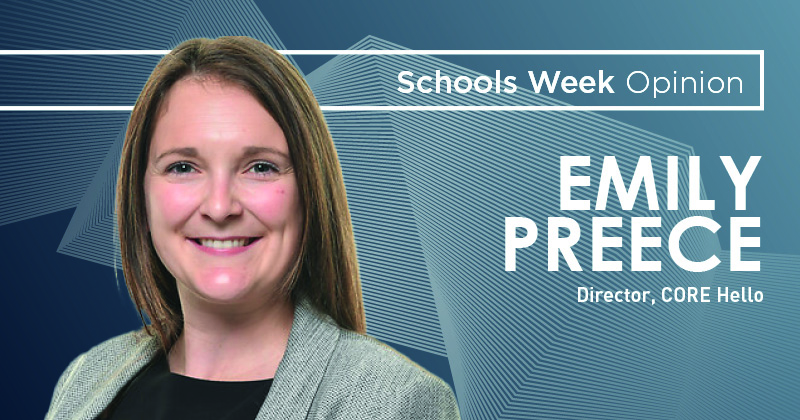I like to think I’m quite an optimistic person, but unfortunately when I was asked to join a panel last summer, on whether we would ever have a fair education system, I struck-up a distinctly downbeat tune. Luckily, my new report “Mapping the Way to Educational Equity” offers some glimmers of hope.
The reason I was so negative last summer is that when people talk about education being fair, they’re generally talking about educational outcomes. Yet it’s not even clear what ‘fair’ outcomes look like.
Fairness might mean everyone achieving equally and of course, we can – and should, do more to reduce attainment gaps. However there will always be natural variation in ability and we can’t eliminate chance completely. As Ben Newmark and Tom Rees explained in Schools Week, it’s unfair to expect young people with profound disabilities to achieve the same goals and outcomes as their peers.
We could also say that outcomes are fair if everyone achieves their potential. That view underpinned the old three-tier selective schooling system.
But part of the reason for the shift to comprehensives was that politicians were increasingly convinced by research showing young people’s ‘potential’ was more malleable than previously realised.
Anyway, even if each child’s potential were fixed, how would we gauge it and know when we’d done enough to discover it?
One of the most common notions of fairness is the idea of ‘just deserts’. But deciding what a pupil deserves is a veritable can of worms. Does the child who spends two hours on their homework every night ‘deserve’ to do better than the young carer who only spends an hour on it – late at night after helping their parents?
Rather than focusing on outcomes, we should take the approach advocated by philosophers like the late John Rawls, who revolutionised political theory with his concept of ‘the veil of ignorance’. His book, Justice as Fairness, is the starting point for my Cambridge University Press and Assessment report on educational equity.
Imagine you didn’t know which family you were going to be born into, or how easy you would find it to learn. What level of funding would you want for specialist support, or for early childcare from this ‘original position’? How long a waiting list would you tolerate for mental health support, and how would you want the best teachers to be allocated?
Would you take a gamble and decree that superstar-teachers should be allocated to top sets, or would you want them to be targeted at pupils who find learning tough – as an insurance policy against the possibility you might be one of them? In fact, would you have setting at all?
Rawls doesn’t tell us the answer to these questions, but he would agree that an education system can only be fair if it would be agreed to under these conditions.
What’s still missing is an account of what we’re aiming for when distributing educational support. Fortunately another wise-man can help here. The Indian philosopher (and economist) Amartya Sen is famous for his concept of ‘capabilities’ – by which he means the ability to do certain basic things.
In a 2019 book on educational aspirations, Caroline Sarojini Hart builds on Sen’s theory, arguing that education should allow us to achieve the capability of ‘pursuing a valued life’. That may mean different pupils receiving different amounts of ‘commodities’ (like educational support) to attain this.
My new report uses a combination of Rawls, Sen and Sarojini Hart’s ideas as a starting point for defining ‘educational equity.’ Luckily, this is where the more positive spin comes in: if fairness is less about outcomes, and more about how we distribute support, then educational equity becomes a more achievable goal.
A first step would be to mend the holes in the ‘informational architecture’ through which we understand young people’s needs. At the moment, short term funding pots, siloed services and constant staff churn make it hard to gain a rounded picture of what support individual young people need. Then, once needs are identified, threadbare resources make it almost impossible to respond adequately.
Graeme Duncan is Chief Executive of Right to Succeed, a charity supporting schools and their pupils in communities like Great Yarmouth and Blackpool. He often finds that when his organisation is trying to support a family, the first challenge is finding out where they even live, because the family – and the staff who work with them – are forced to move so frequently.
Databases and processes are supposed to patch-over these gaps but nothing can match continuity, and the deep ‘relational’ knowledge long-serving local community workers can provide when they know an area and its families inside out. The value of this type of expertise is forgotten when short-term, ‘average outcomes’ trump equitable support, but there are alternative approaches to commissioning services that can radically shift this dynamic.
My new report also makes the case for a more expansive notion of what support is needed to achieve fundamental capabilities, asking ‘what are the obstacles on the way to our destination.’ I argue that although challenges like housing, maternal health, and poverty are sometimes dismissed as being ‘too difficult’ to tackle, there is an opportunity cost to constantly focusing on school interventions.
Ultimately, it’s time to recognise that the pursuit of educational equity requires a cross-societal mission to transform childhood. After all, it’s what justice as fairness demands of us.











